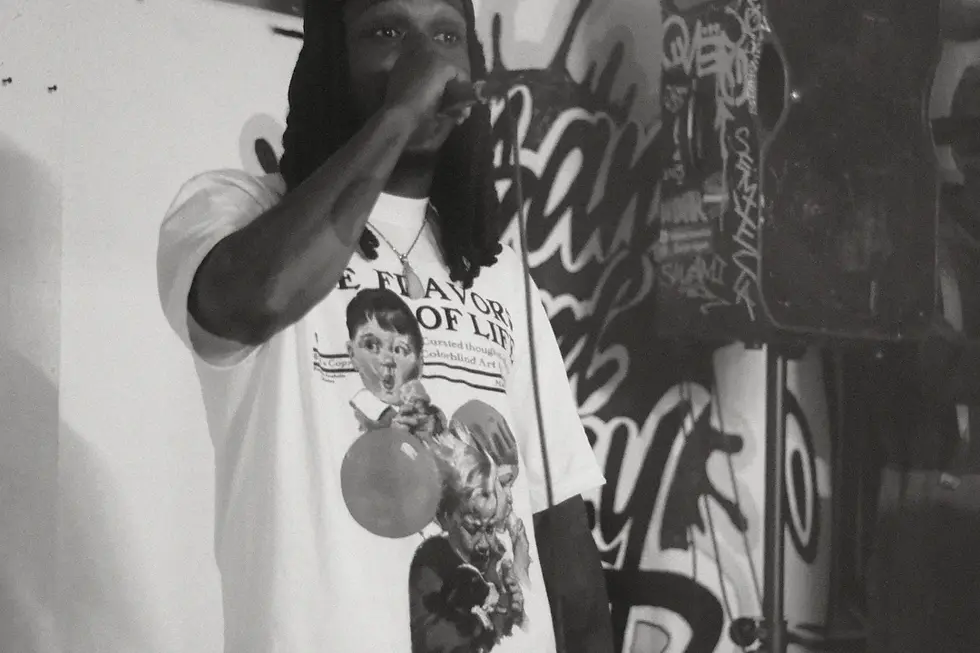The Business of Hip Hop: An Inside Look
- Daniel Rasul
- Sep 20, 2025
- 5 min read

Hip hop is not just a genre of music; it is a cultural phenomenon that has shaped art, fashion, and entrepreneurship over the decades. From its humble beginnings in the streets of the Bronx to a global influence that commands billions of dollars, the business of hip hop offers a fascinating insight into the mechanics behind one of the most impactful genres in modern music. In this blog post, we will explore the various aspects that make hip hop a compelling business, including the significance of 90's rap album reviews, 2000's rap album reviews, rapper ratings, and the evolving landscape of hip hop albums reviews.
The Evolution of Hip Hop as a Business
Hip hop emerged in the late 1970s, and by the 1980s, it had started to penetrate mainstream culture. The 1990s are often considered the golden age of hip hop, characterized by the release of iconic albums that set the standard for the genre. 90's rap album reviews reflect an era where storytelling, lyricism, and production quality were taken to new heights. With artists like Tupac, Biggie, and Nas, the hip hop scene introduced a robust consumer base that began driving sales, creating merchandise opportunities, and inspiring a new generation of artists.
Key Players in the Hip Hop Industry
The hip hop industry is a complex web of artists, producers, managers, and record labels, each playing a crucial role in shaping the business. For instance, producers not only create beats but also influence the sound and direction of projects, as seen in 2000's rap album reviews. Managers are essential for negotiating contracts, ensuring that artists make the most from their music careers. Hence, understanding rapper ratings becomes instrumental for artists when choosing collaborations and strategizing their careers.
The Role of Record Labels
Record labels can make or break an artist's career. They offer the necessary financial backing, production resources, and marketing strategies that propel a rapper into mainstream success. However, this often comes with a hefty price, as artists may sign contracts that grant labels significant control over their music and image. The evolution of hip hop has seen independent labels rise and disrupt the traditional hierarchical structure, allowing artists more autonomy. This shift is evident in the positive upswing of independent reviews, which focus on authenticity and personal narratives, stripping away industry biases.
Understanding Hip Hop Albums Reviews
To appreciate the business of hip hop, it's essential to analyze hip hop albums reviews. Reviews serve as crucial benchmarks for both fans and artists. They can increase an album's visibility and, in some cases, sway public opinion. They also provide insight into the lyrical themes and production quality that define a specific artist's style. A well-received album is not only a reflection of artistic talent but often leads to increased sales, merchandise opportunities, and tour dates.
Influence of Critics and Fans
Critics hold significant power in the industry. Reviews from well-known publications can elevate an artist, while negative critiques can harm their reputation. Thus, many emerging artists strive for favorable rapper ratings to build momentum in the competitive market. Similarly, fan reviews and community feedback play a critical role in shaping an album’s narrative. Social media provides a platform where fans can freely express their opinions, further impacting an artist's career trajectory.
The Digital Revolution and Its Impact
With the rise of digital consumption, the hip hop industry has adapted quickly. Streaming platforms like Spotify and Apple Music have transformed how artists release and monetize their music. Today, a single can generate revenue faster than a full album using traditional sales methods. Furthermore, many platforms now feature user-generated content, allowing fans to share their hip hop albums reviews and offer their ratings, creating a more community-driven landscape for music consumption.
The Rise of Social Media Marketing
Social media marketing has become an indispensable tool in the hip hop business. Artists leverage platforms like Instagram, Twitter, and TikTok to engage directly with fans and promote their work. Viral moments often lead to increased visibility and sales. Many successful artists have built their careers organically through social media, allowing them to retain more control over their brand and earnings. This democratization of the music industry aligns with the grassroots origins of hip hop, where the community played an essential role in its growth.
Merchandise and Brand Collaborations
Merchandising has become a critical revenue stream for hip hop artists. From apparel lines to exclusive product collaborations, merchandise allows artists to extend their brand beyond music. Collaborations with sneaker companies, fashion brands, and even tech companies have introduced diverse revenue streams that artists can access, reflecting both the cultural significance and commercial viability of hip hop.
Case Studies of Successful Brands
Countless artists have successfully capitalized on their musical prowess to create thriving businesses. For example, Kanye West’s Yeezy brand has merged music with high fashion, while Jay-Z has evolved into a business mogul with ventures in alcohol, sports, and entertainment. Each of these artists demonstrates how hip hop can be a springboard for entrepreneurial success, leveraging their fame to branch out into different sectors.
The Future of Hip Hop: Trends to Watch
As hip hop continues to evolve, several trends are shaping the industry’s future. From the rise of synthetic voices in AI-generated music, to song distribution models that challenge traditional record contracts, the landscape is ever-changing. The incorporation of augmented reality and virtual performances presents new opportunities for artists to connect with their audience, while also diversifying income sources.
The Role of Diversity and Inclusion
As the genre grows, it is becoming increasingly diverse, welcoming voices from different backgrounds and communities. This evolution helps to create many sub-genres within hip hop, providing a platform for underrepresented artists. The fresh perspectives and stories presented through 2000's rap album reviews and contemporary critiques also reflect this cultural shift towards inclusivity.
Your Role in the Business of Hip Hop
As a fan or budding artist, understanding the business side of hip hop can enrich your experience. Engaging with 90's rap album reviews and exploring rapper ratings allows you to appreciate the artistry even further. For aspiring artists, learning how to effectively market themselves and their music can lead to more successful careers. Remember, hip hop is not just about the beats; it’s about building a brand, fostering community, and ultimately, creating a legacy.
Wrapping It Up with a Beat
The business of hip hop is as complex as it is exciting. From understanding reviews that help you navigate the evolving landscape of the genre to keeping up with trends in technology and marketing, there’s a lot to explore. Whether you are an avid listener or a fledgling artist, recognizing the significance of the business can empower you. As the hip hop industry continues to innovate and expand, staying informed about changes and influences will keep you connected to this vibrant, ever-changing cultural movement. Dive in, explore, and make your mark in the world of hip hop!
FAQs
What is the main focus of the blog 'The Business of Hip Hop: An Inside Look'?
The blog explores the business aspects of hip hop, highlighting its cultural significance, evolution, key players, and the impact of digital consumption and social media.
How did hip hop evolve as a business from its origins?
Hip hop emerged in the late 1970s and gained mainstream recognition in the 1980s, reaching a golden age in the 1990s with iconic albums that drove sales, merchandise opportunities, and inspired new artists.
What role do record labels play in an artist's career in hip hop?
Record labels provide financial backing, production resources, and marketing strategies, but can also impose significant control over an artist's music and image.
How has the digital revolution impacted hip hop music consumption?
The rise of streaming platforms has transformed how hip hop is released and monetized, with singles generating revenue faster than traditional album sales.
What are some trends shaping the future of hip hop?
Trends include the rise of synthetic voices in AI-generated music, new song distribution models, augmented reality, virtual performances, and an increasing emphasis on diversity and inclusion.





Comments